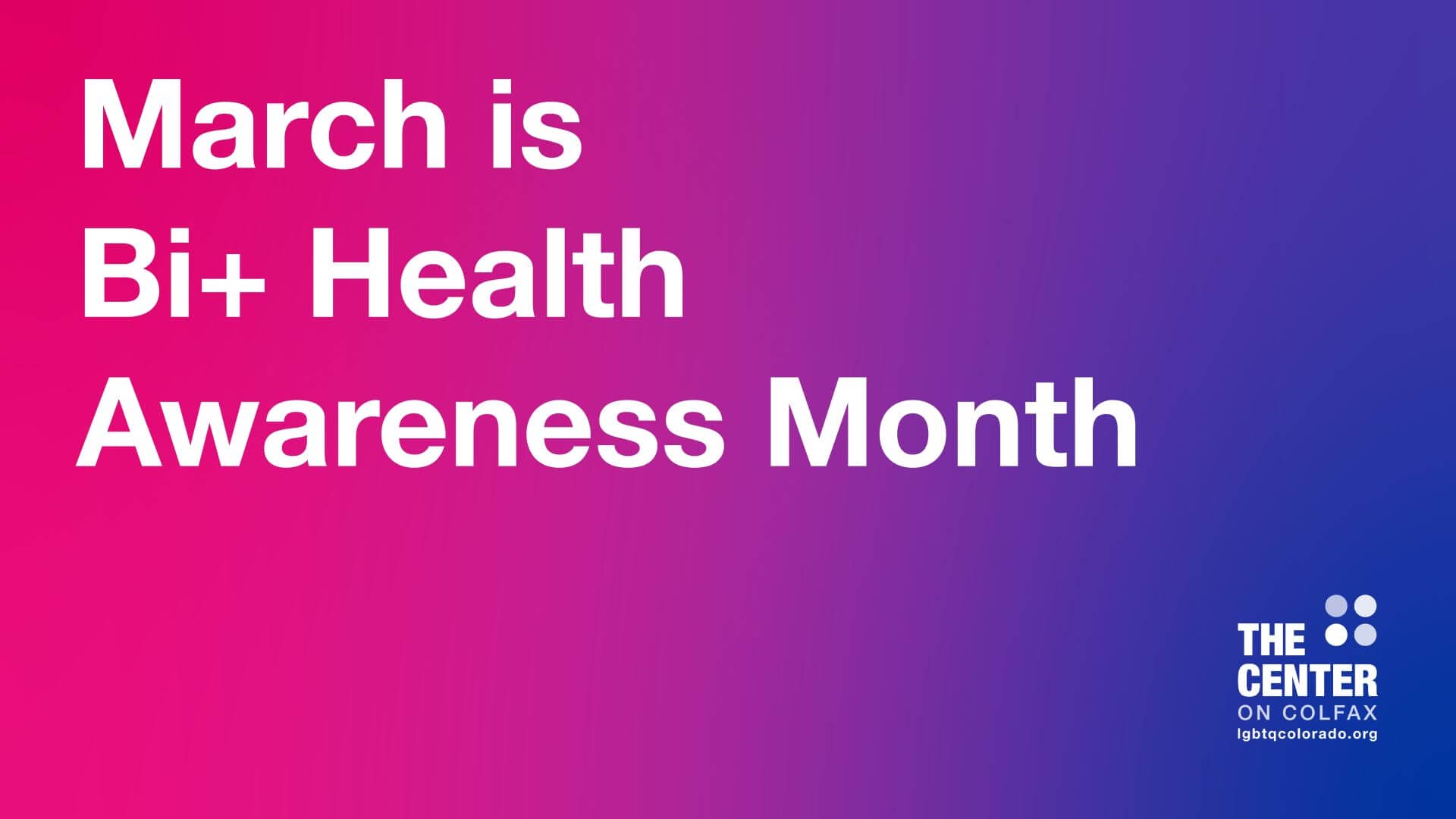March is Bi+ Health Awareness month! Started in 2014 and led annually by the Bisexual Resource Center, this month raises awareness about the bi+ community’s social, economic, and health disparities, advocates for resources, and inspires actions to improve the wellbeing of all bi+ people.
About the Bi+ Community
The term “bi+” refers to a wide range of identities, including bisexual, pansexual, omnisexual, queer, fluid, and other non-monosexual identities.
According to a 2021 poll conducted by Gallup, 54.6% of the LGBTQ+ community identifies as bisexual, and 3.3% describes their sexual orientation in non-monosexual terms such as queer and same-gender-loving. This means that 57.9% of the community falls under the bi+ umbrella.
About Bi+ Health Disparities
While bi+ people account for the largest single proportion of the LGBTQ+ community, they are often understudied in health research, and bi-specific community services are underfunded.
Studies have shown that bi+ people experience higher rates of mental health challenges like depression, interpersonal violence, and other physical, social, and mental health disparities when compared to their gay, lesbian, and heterosexual peers.
Bi+ erasure is another detrimental factor to many bi+ people’s wellbeing. Bi+ erasure occurs when bi+ people have a difficult time being recognized as bi, due to being lumped in with their gay or lesbian counterparts, or not accounted for or represented at all.
This erasure can lead to many negative consequences, including lack of social or legal support systems, and mental health difficulties due to feelings of alienation or a lack of belonging.
The risk of health disparities in the bi+ community is worsened for people who are members of other marginalized groups, such as people of color, transgender and nonbinary people, people with disabilities, and women.
Tips & Resources for Addressing Bi+ Health Disparities
Talk to Your Health Provider About Your Identity: Speaking to your healthcare provider about your bi+ identity can help ensure you are receiving the right care. If you don’t currently have health insurance, visit Out2Enroll for more information and help with enrolling. For assistance finding a bi+ affirming provider near you, visit the bisexual section of our resource directory.
Take Care of Your Sexual Health: No matter you or your partner(s)’s sexual and/or gender orientation, it is important to practice of safe sex. Safe sex practices include using relevant types of protection to prevent STIs and/or pregnancy, getting tested for STIs and sharing results with your partner(s), and openly communicating with your partner(s) before, during, and after a sexual encounter to ensure all participants are comfortable and consenting to any activities.
Find a Bi+ Community: Studies show that bi+ people associate positive mental health outcomes with social support, self-acceptance, volunteering, and belonging in a bi+ community. Visit biresource.org/find-a-bi-group to find a group nearby you!
Celebrate Your Bisexuality: You can celebrate your identity by incorporating practices that help you feel seen into your daily life. This could include reading books and watching movies relevant to the bi+ experience or created by bi+ artists, learning about bi+ history, incorporating bi+ colors into your outfits, home decorations, or office furnishings, and reaching out to fellow bi+ community members.
For additional tips and information on addressing bi+ health disparities, see the following resources:
- Bisexual Resource Center: Mental Health in the Bi+ Community
- Bisexual Resource Center: Sexual Health Tips for the Bi+ Community & Best Practices for Providers
- Denarii Monroe, Go Magazine: How Bi+ People Can Take Charge of Their Sexual Health in a Bi+ Antagonistic Society
To learn more about bi+ health, see these resources:
- Bisexual Resource Center: Bi+ Health Awareness Month
- Human Rights Campaign: Bi+ Health Brief
- National Coalition Against Domestic Violence: Domestic Violence and the LGBTQ Community
- Danielle McPeak, BU Today: POV: What about the “B” in LGBT?
- The Trevor Project: Research Brief: Bisexual Youth Experience

